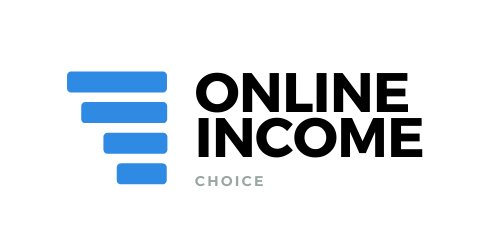Mastering Google Business Profile With Local SEO Optimization Techniques
BRIAN CLARK | FOUNDER OF COPYBLOGGER
Page two of Google...
The best place to hide a dead body is page two of Google search results.
Did you know 46% of all Google searches are local? This shows how vital local SEO is for businesses today. For instance, a small bakery in Denver saw a 50% increase in foot traffic after optimizing its Google Business Profile and using local keywords effectively.
This kind of success story illustrates how impactful local SEO can be, especially for small businesses. With more people using smartphones to find local products and services, knowing local SEO is key.
This guide will look at the latest local SEO tools and methods. We'll cover how to improve your local search rankings and use Google Business tips to stand out and attract more local customers.
Key Takeaways:
- Local SEO is vital, with 46% of Google searches having local intent.
- Mobile optimisation is crucial as 61% of Google searches occur on mobile devices.
- "Near me" mobile searches have grown by 250% since 2017.
- Google My Business optimisation can significantly boost local search visibility.
- Consistent NAP (Name, Address, Phone) information across online directories is essential.
- Local community engagement can lead to improved brand awareness and inbound links.
Want to listen? This content is available on Spotify
Ready to start?
Understanding Local Search Engine Optimisation
Local search engine optimisation strategies are key for businesses wanting to get more online visibility.
For more in-depth strategies, you can refer to Mastering SEO for Affiliate Marketing, which provides complementary insights that overlap with traditional SEO techniques. Compared to traditional SEO, local SEO specifically targets users who are searching for products or services within a specific geographical area.
This is crucial because users often have high intent when searching locally—they're more likely to convert into customers. For example, research shows that 76% of people who conduct a local search on their smartphone visit a related business within 24 hours.
By focusing on local SEO, businesses can ensure they are reaching potential customers precisely when they're looking to make a purchase decision. This gives smaller businesses an edge over larger, less geographically-targeted competitors.

For more guidance on leveraging SEO to grow passive income streams, refer to Discover Paths to Passive Income Ideas Online. Local SEO helps websites show up in local search results, which is vital for shops and businesses that serve a specific area.
What is Local SEO And Why It Matters
Local SEO makes a business more visible in local search results. It's super important for small businesses because it helps them compete with big companies in their area. By using effective local SEO, businesses can attract more local customers and increase in-store visits.
Key Statistics And Market Impact
The effect of local SEO on businesses is significant:
- 85% of customers looking for products and services prioritize businesses with strong local search rankings.
- 77% of people check reviews when searching locally.
- 80% of local SEO rankings depend on being relevant, close, and well-known locally.
How To Do Local SEO: Complete A-Z Tutorial
The Difference Between Local And Traditional SEO
| Local SEO | Traditional SEO |
|---|---|
| Uses local keywords | Uses general keywords |
| Uses Google Business Profile | Focuses on website optimisation |
| Emphasises NAP consistency | Values backlink quality |
| Targets local search intent | Seeks broader search queries |
Understanding these differences is key to developing effective local SEO strategies, especially for small businesses looking to enhance their online presence.
Google Business Profile Optimisation Fundamentals
Google Business Profile optimisation is key for local marketing. Make sure to take advantage of features like Q&A, business descriptions, and Google Posts. These features can provide additional information to potential customers, keep your audience engaged, and improve your local SEO performance.
It's a major factor in search rankings, helping your business show up in local searches. By optimising your profile, you boost your visibility and connect with local customers.
Start by claiming and verifying your profile. This makes your business look legitimate to Google. After verification, ensure your details are correct and consistent across all online platforms.
Choosing the right business categories is important. They help Google understand what you do and match you with the right searches. Don't forget to add attributes to give more details about what you offer.
Discover The Path To Passive Income Success
Take the first step towards a lucrative future - sign up for exclusive insights and resources!
High-quality photos are vital for your profile. They show what you offer, building trust with potential customers. Keep your photo gallery updated to maintain interest.
Finally, list your products or services on your profile. This allows customers to see what you offer before visiting your website. An optimised Google Business Profile can significantly improve your local search performance, bringing more customers to your business.
Local SEO Optimization Techniques
Mastering local SEO tools and techniques is essential to improving local search rankings. An important aspect of local SEO is user-generated content, such as customer reviews and community interactions.
To effectively encourage customers to leave reviews, consider offering incentives like discounts or special promotions, and use follow-up emails to prompt feedback after a purchase.
Reviews not only help build trust with potential customers but also significantly influence local search rankings. For further insights on how reviews and customer engagement can drive conversions, refer to Earnings Email Marketing for Affiliates.
Engaging with community feedback and encouraging positive reviews can boost your business's reputation and improve your local visibility. Effective strategies start with thorough keyword research. Tools like Semrush's Keyword Magic Tool help find keywords with high volume and low competition.
Analyzing competitors' websites provides valuable insights and helps in creating content that targets your local area. By doing so, you can build local authority and increase your search visibility. Remember, on-page optimisation is also crucial for following local SEO best practices.
Creating high-quality, original content is a strong way to boost local SEO. For more specific tactics to develop impactful content, refer to Content Marketing for Online Success. This approach not only improves your search rankings but also makes your business a trusted local resource. Here are some key statistics that show the benefits of local SEO:
Local SEO Statistic | Impact |
| 46% of internet searches have local intent | Significant focus on local SEO optimisation |
| 50% of smartphone users visit businesses within a day of local search | Drives immediate offline engagement |
| 85-95% of consumer engagement happens through local listings and pages | Emphasises the importance of a local online presence |
| 90% of buying decisions are influenced by online reviews | Highlights the need for positive local reputation management |
These statistics demonstrate how vital strong local SEO strategies are. By using these techniques, businesses can greatly improve their local search rankings and attract more local customers.
Building A Strong Citation Profile
Creating a solid citation profile is key for local SEO success. For additional context on building credibility through citations, refer to the Guide to Starting Affiliate Marketing.
Tools like Moz Local, BrightLocal, or Yext can help manage citations effectively, making it easier to ensure that your business information is accurate and consistent across the web. Managing and maintaining business listings across different online sites helps you appear more in local searches and increases trust with search engines.
NAP Consistency Across Platforms
Keeping your Name, Address, and Phone number consistent everywhere is called NAP consistency in SEO. For a more detailed explanation of why NAP consistency is crucial for local SEO, you can refer to this guide on NAP consistency. Ensuring your NAP details match across your website, Google Business Profile, and other directories is essential for search engines to verify the legitimacy of your business.
Managing Business Directories
Managing your listings on business directories is crucial. Begin by getting listed on big data aggregators like Data Axle, Localeze, and Foursquare. These platforms share your information with many other sites, making you more visible online.
Citation Type | Benefits | Examples |
| Structured Citations | Provide standardised NAP information | Google Business Profile, Yelp, Yellow Pages |
| Unstructured Citations | Enhance online visibility and reputation | Blogs, news articles, social media mentions |
Industry-Specific Citation Sources
To boost your local SEO, focus on citations from your industry. Specific directories can make you more relevant and trusted in your field. For example, if you run a restaurant, get listed on food review sites and local dining guides.
Remember, building your local citations is a continuous task. Regularly check your listings, remove duplicates, and update your information as necessary. With a strong and consistent citation profile, you'll get more visibility in local searches and attract more customers.
Content Strategy For Local Markets
Creating a content strategy for local markets is key for businesses wanting to grow online. By using geo-targeted keywords and content specific to the area, companies can better connect with their audience and rank higher in search engines.
Creating location pages is a crucial part of a local content strategy. These pages should have important business details, service areas, images, maps, and customer feedback. You can create different types of location pages, such as those for regions, cities, or neighbourhoods.
Using local schema markup helps search engines understand your business's location and offerings. For a detailed guide on how to implement local schema markup, refer to this Local Schema Markup Guide from Moz. This technical step can make your business more visible in local search results.
Blogging is essential for standing out in the local market. Writing about local events, trends, and guides can help you reach more people. It's important to use local keywords naturally in your content.
Content Type | Benefits | Implementation Tips |
| Location Pages | Target local keywords, lower difficulty scores | Include business details, service area, images, maps |
| Blog Posts | Local market advantage, keyword targeting | Cover local events, trends, and guides |
| Google Business Profile | Share updates, events, and offers | Include text, photos, reviews, FAQs |
Remember, 97% of people search online for local businesses, and 28% of these searches lead to a purchase within a day. A strong local content strategy can help businesses tap into these trends, leading to increased traffic and sales.
Local SEO Keyword Optimization For Near Me
Local Link Building And Authority Development
Local link building is key for businesses wanting to increase their presence in local search results. There are several effective tactics to acquire backlinks from the local community:
- Local Influencers: Collaborate with local influencers to mention your business on their platforms. Influencers often have loyal followers, and their endorsements can increase your brand's visibility and credibility in the local area.
- Local Sponsorships: Sponsor local events, charities, or sports teams. This can help your business gain mentions on event websites or community pages, boosting your backlink profile.
- Community Events: Hosting or participating in community events can also provide link-building opportunities. Get featured on event listings, local blogs, or news websites to increase backlinks.
These tactics help generate high-quality backlinks and enhance your brand's reputation within the local community. Acquiring links from local sources makes your website more trusted and boosts your ranking in search engines.
Community Engagement Opportunities
Getting involved in your local community is a smart move. For more on how community involvement can boost local side hustle opportunities, refer to Side Hustle Online Selling to Make Money.
Sponsoring events or donating to charities can lead to mentions on important websites, which boosts your brand's visibility. Since 38% of searches are local, community engagement is very beneficial.
Newsletter Sign Up
Discover The Path To Passive Income Success
Take the first step towards a lucrative future - sign up for exclusive insights and resources!
Local Press And Media Relations
Working with local media can boost your local SEO. Share interesting content or act as an expert to get links from reputable local news sites. This not only helps your search rankings but also makes your brand more credible.
Partnership Development Strategies
Team up with other local businesses for link-building wins. Consider cross-promotion or creating content together. Choose partners that align well with your business and target audience.
To get the most out of local link building, research your local area. Use tools like Local Falcon or Local Viking to assess your local ranking. With these steps, you can build a strong local presence and improve your appearance in local searches.
Mobile Optimisation For Local Search
In today's world, making your website mobile-friendly is key for local SEO. Additionally, implementing Accelerated Mobile Pages (AMP) can help improve the mobile experience by ensuring your pages load faster.
AMP is particularly useful for improving local SEO, as it enhances the user experience on mobile devices, which directly impacts your rankings in local searches. With 64% of searches done on mobiles, businesses need to focus on mobile sites. Google now looks at your mobile site first when ranking your site.






Mobile-First Indexing Considerations
To perform well in mobile-first indexing, your website must work seamlessly on all devices. Keeping your site consistent helps maintain rankings and user satisfaction. Additionally, 57% of users won't recommend businesses with poorly performing mobile sites.
Local Voice Search Optimisation
Voice search for local businesses is becoming more important. With more "near me" searches, using natural language in your content helps make your site more visible to voice search users.
Page Speed And User Experience
Page speed is crucial for both user experience and local SEO. A slow site can lose 53% of mobile visitors if it takes over three seconds to load. Optimising images and using browser caching can significantly improve your site speed.
By improving mobile optimisation, local businesses can gain more online visibility and attract more customers. Remember, 88% of mobile users who search for a local business visit or contact them within 24 hours. Making your site mobile-friendly is now essential for local SEO success.

The Bottom Line
Local SEO is crucial for businesses wanting to grow online and attract local customers. Monitoring and using analytics tools like Google Analytics and Google Search Console are essential for tracking performance. Metrics such as local keyword rankings, customer location data, and user engagement help evaluate success.
Consistently evaluating metrics like website traffic and customer interactions allows businesses to make data-driven decisions. Local SEO helps companies become more visible in searches, which is vital in today's mobile-driven world.
We covered strategies like optimising Google Business Profiles and building a strong citation network. Maintaining consistent Name, Address, and Phone number (NAP) across all platforms is key. Creating content for local audiences helps improve rankings and attract customers.
Mobile optimisation is also crucial, as many searches happen on phones. Businesses that focus on fast, user-friendly mobile sites can capture more traffic. Gathering good reviews and managing your online reputation also boost local SEO.
Local SEO requires continuous effort, with regular checks and tweaks. By following these techniques, businesses can enhance their visibility and attract more customers.
Glossary Of Key Terms
FAQ
Local SEO makes your business show up in local search results. It's key because 46% of Google searches are local. It brings in local traffic, leads, and boosts brand awareness. Good local SEO makes your business more visible, attracting more customers.
Local SEO focuses on where you are, using tools like Google Business Profile. It's about being seen in local searches, like Google Maps. It's different from traditional SEO, which is more general.
To optimise your Google Business Profile, claim and verify it first. Make sure your business info is correct. Choose the right categories and add photos and products. An optimised profile can lead to more directions and website clicks, significantly helping your business.
To boost your local SEO, start with keyword research. Use tools like Semrush's Keyword Magic Tool. Then, create content for your area and optimise your website.
Keep your NAP (Name, Address, Phone) the same everywhere. Build links and make sure your site works well on mobile. Always check and update your strategy to keep improving.
NAP stands for Name, Address, and Phone number. Keeping this info consistent everywhere is key. It helps search engines verify your business and boosts your local search chances.
Build local authority by getting involved in your community. Sponsor events, donate to charities, and host workshops. Build relationships with local media and partner with other local businesses. Create content about local news and events. This helps establish you as a local leader.
Mobile optimisation is crucial because most searches are done on phones. Make sure your site works well on all devices. Focus on voice search and make your site fast to keep users engaged.
Good local citation building includes managing data aggregators and removing duplicates. Join local Chambers of Commerce and focus on industry-specific sources. Keep your NAP consistent everywhere and use tools to track your citations.
Create content for your local area by making pages and blog posts about it. Use local keywords and add schema markup. Share local news and events in your content. For businesses in multiple locations, create specific pages for each area.
Managing customer reviews is key for local SEO. It affects your reputation and search rankings. Encourage positive reviews and respond to all feedback. Use customer feedback to improve your business. Good reviews can boost your local visibility and attract more customers.

